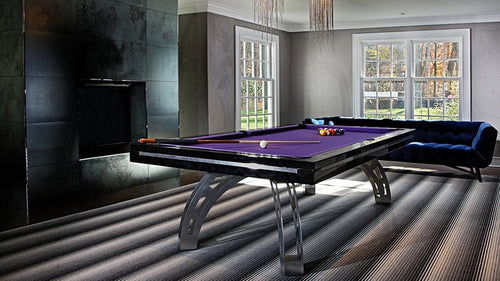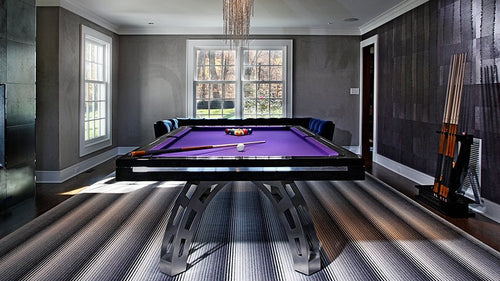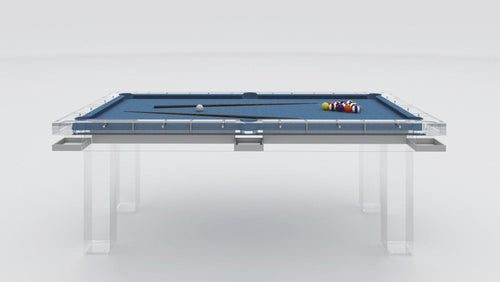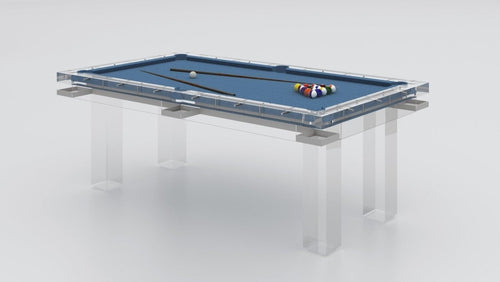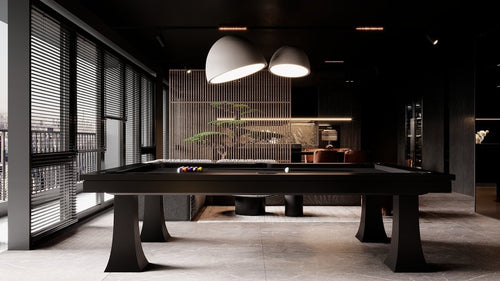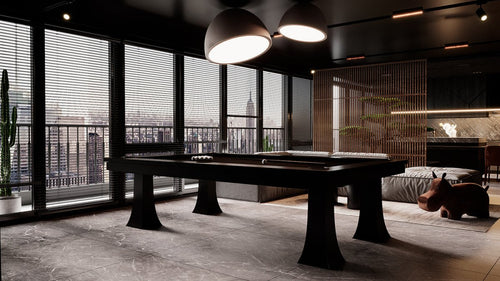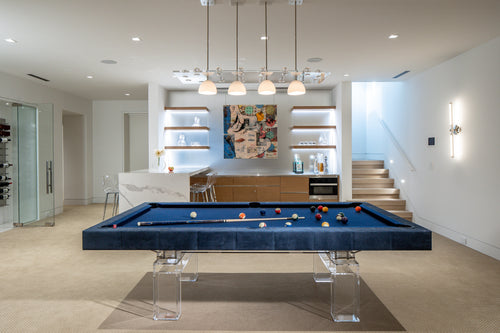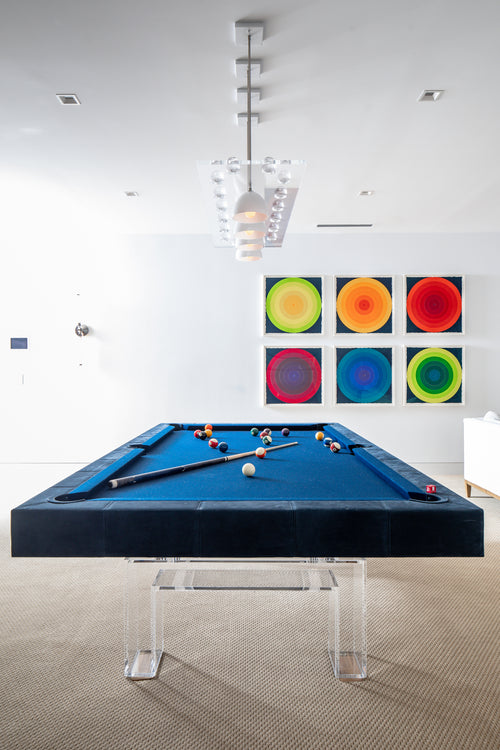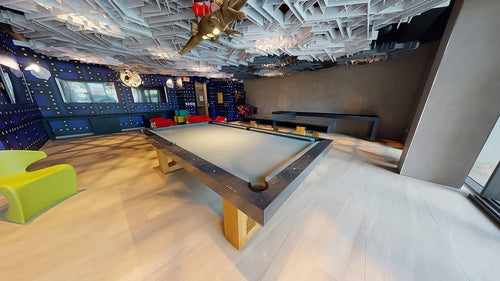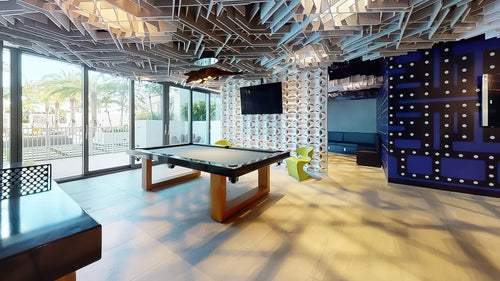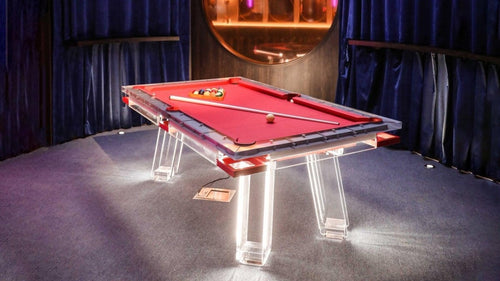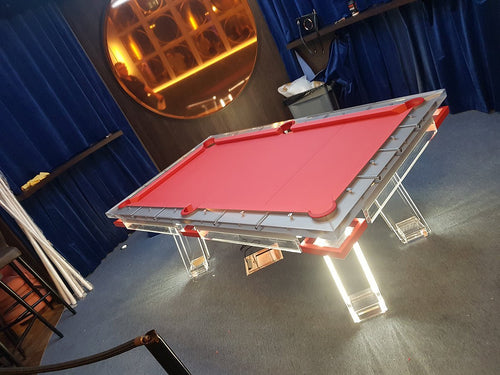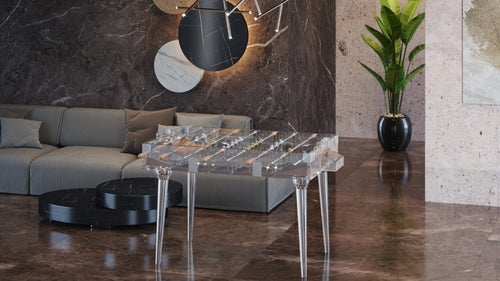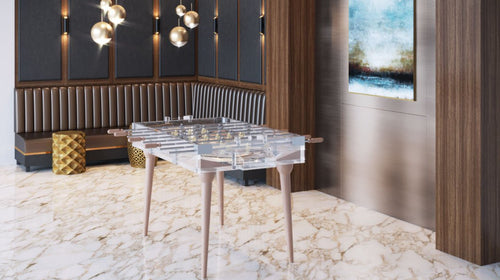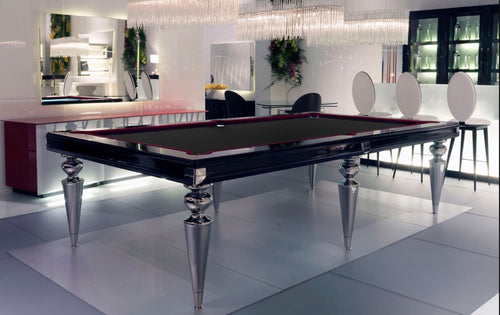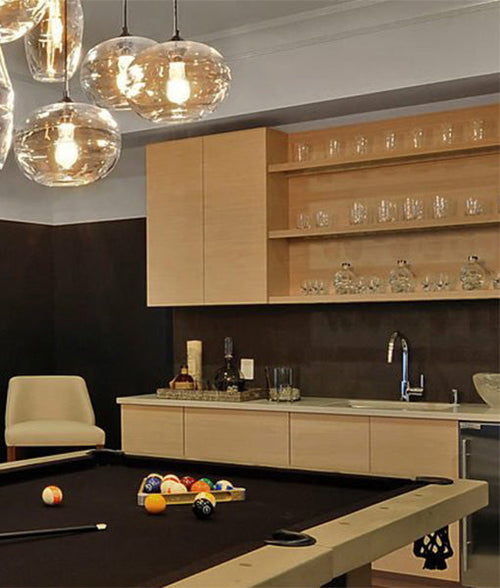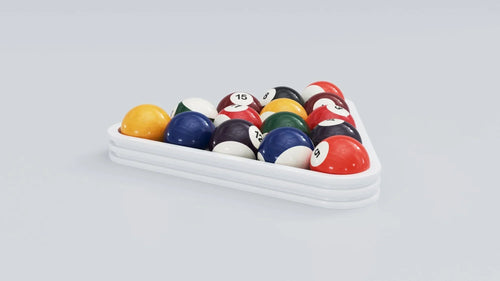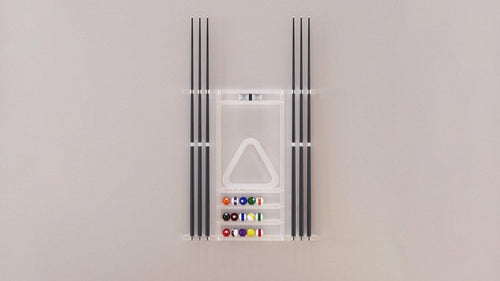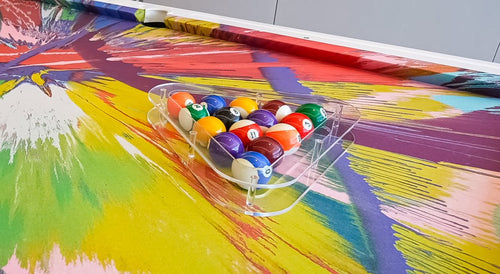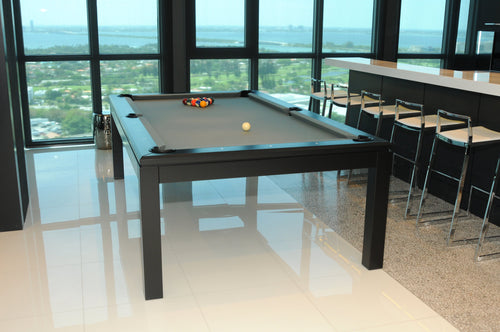Enjoy our modern designs
Pool Table
Bed Materials
The bad, the good, and the ugly — a clear-eyed comparison of every surface material used in modern pool tables, from slate to plastic honeycomb.
When selecting a pool table, the choice of bed material is the single most consequential decision you will make — it governs play quality, durability, and the long-term value of your investment. Here is a comprehensive look at every material in current use, and what each one actually means for your game.
From Best to
Budget

Slate remains the unmatched choice for both professional players and serious amateurs. Quarried from natural sources, it provides an impeccably smooth and level playing surface that resists warping, humidity, and wear. Brazilian slate is celebrated for its hardness and resilience; Italian slate is prized for its fine grain and aesthetic appeal. With proper care, a slate table lasts over 30 years — making its premium price a straightforward long-term investment rather than a luxury.

Compact Fibre Cement Slab represents a novel approach targeting those who value durability and sustainability. Its cement-and-cellulose composition provides a sturdy, warp-resistant surface that holds up well to regular play. It is somewhat lighter than slate, making it more practical for contemporary design-led tables like those from RS Barcelona. Playability is good but does not quite match the smoothness and consistency of natural slate — a trade-off most design-focused buyers accept willingly.

Medium Density Fiberboard is the material behind most big-box store pool tables. Crafted by compressing wood fibers into a dense, uniform board, MDF offers a smooth enough surface for casual recreational play and costs a fraction of slate. Its significant limitation is susceptibility to warping in environments with fluctuating humidity — a problem that worsens over time and degrades both the flatness and playability of the surface. Fine as a starting point; not a long-term investment.
Slatron — also marketed as Permaslate — is a lightweight blend of particleboard and layers of plastic resin. Its main advantage is significantly reduced weight compared to natural slate, making tables easier to handle and install. The surface can withstand reasonable pressure and impact, and provides a smoother playing experience than bare MDF. Its limitation is that it does not provide the responsiveness or consistent ball roll of slate, and ball behavior can feel slightly deadened by comparison.
Accuslate is a trade name for high-density fiberboard — essentially denser MDF — used as a budget alternative to natural slate. It provides a level playing field adequate for casual play and comes at a lower price point, but its name suggests a proximity to slate that its performance does not justify. Like MDF, it is susceptible to warping in humidity-variable environments. Its durability falls short of slate, Slatron, and even Fibre Cement. It appeals primarily on cost and weight, not performance. Read our in-depth breakdown of Accuslate for the full picture.
The plastic honeycomb structure makes for a lightweight, easily maneuverable table that delivers a level and stable playing field for its price point. Its innovative internal structure distributes load well and keeps the surface flat under normal conditions. The trade-off is a noticeably less smooth surface than any of the other materials listed here — something that affects ball roll and shot precision enough to be felt in regular play. Best suited for outdoor or basement settings where portability and weather resistance matter more than playing precision.
Installation, Maintenance
& Long-Term Value
Lighter materials — MDF, Accuslate, Slatron — offer ease of installation and lower costs due to their reduced weight. These tables are straightforward to move and set up, making them suitable for less permanent arrangements. The trade-off is reduced stability: a lighter bed is a less stable one, and any give in the surface under impact is transmitted directly into ball behavior.
Compact Fibre Cement provides a useful middle ground — more durable and stable than MDF, yet significantly lighter than a full slate installation and within the capability of two careful people rather than a professional team.
Slate tables, owing to their substantial weight, require professional installation to achieve a perfectly level playing surface. The added mass contributes directly to stability and longevity. Once installed correctly, a slate table rarely needs adjustment. Maintenance requirements are minimal — slate resists wear and environmental factors with little intervention. Repairs are infrequent, and when needed, can be completed without replacing the surface entirely.
Material
Comparison
| Material | Play Quality | Lifespan | Warp Risk | Weight | Verdict |
|---|---|---|---|---|---|
| Slate | ● Exceptional | 30+ years | ● None | Heavy | Best Buy |
| Fibre Cement | ● Very good | 15–20 yrs | ● Very low | Moderate | Solid Choice |
| Slatron | ● Moderate | 5–10 yrs | ● Low–Med | Light | Acceptable |
| MDF | ● Adequate | 3–7 yrs | ● High | Light | Casual Only |
| Accuslate | ● Adequate | 3–6 yrs | ● High | Light | Buyer Beware |
| Plastic Honeycomb | ● Limited | 5–8 yrs | ● Low | Very Light | Recreational |
Consumer feedback and expert opinion consistently highlight the same trade-off: budget materials offer accessible entry points but carry hidden costs in performance and longevity. Accuslate, Slatron, and MDF are acceptable for casual and beginner play, but reviews frequently cite surface inconsistency, less responsive ball roll, and earlier-than-expected warping as the lived reality of ownership after year two or three.
Slate earns consistent top marks for playability, durability, and aesthetics. Its higher upfront cost and installation complexity are well understood — and consistently regarded by owners as worthwhile given the decades of reliable play that follow. For serious players and anyone buying once with the intention of keeping the table long-term, slate is not the premium choice; it is simply the correct one.
Explore our exclusive range of luxury pool tables — crafted to meet your unique needs.
Explore Our Luxury Tables →Prefer some expert help first? Contact us for a free consultation.




